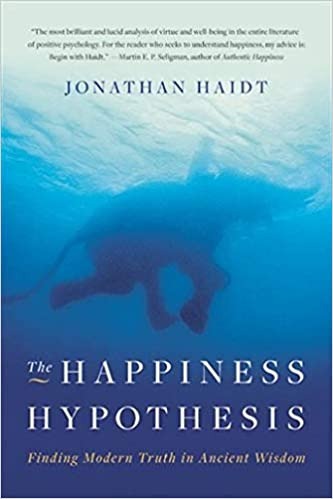
The Happiness Hypothesis - Johnathan Haidt
This book was very disappointing.
Rather than “finding modern truth in ancient wisdom”, this book seems mainly an attempt to *explain* ancient wisdom with modern science.
I think the book completely fails at this.
Aside from some decent summaries of psycho-social science in the last century (which can be found just by reading psychology/sociology books instead of one claiming to provide functional wisdom about happiness), there really is nothing new in this book, and no useful insights into all this research that has been elaborated well by the original authors.
This book recommends psycho-active pharmaceutical drugs as one effective way to “manage” depression. This alone negates the book for me. The hubris involved in thinking humans need drugs to function properly, to me is unforgivable.
He also recommends cognitive behavioral therapy. CBT is covered so extensively elsewhere that this book is neither necessary nor adequate to understand the technique. So if you were to take this authors recommendation on CBT, you’d need another book anyway...This book seems caught in between a literature review and an applicable strategy. It falls short of both.
Finally, I cringe through books that use evolutionary theory to explain human behavior. The worst application is in “happiness” theories. These devout atheist scientists waste a lot of words looking for evolutionary explanations, all of which is a complete waste of time in trying to understand anything. Even if you believe in evolution, there is zero practical application. Human behavior can be understood quite fine by studying behavior itself. Absolutely no need for evolution gibberish.
In my opinion this book will not help anyone be happier, or understand happiness or depression any better than they would by reading common psychology books. “Thinking fast and slow” offers more useful insight into psychology, including much covered in this book, and that book isn’t even about happiness.